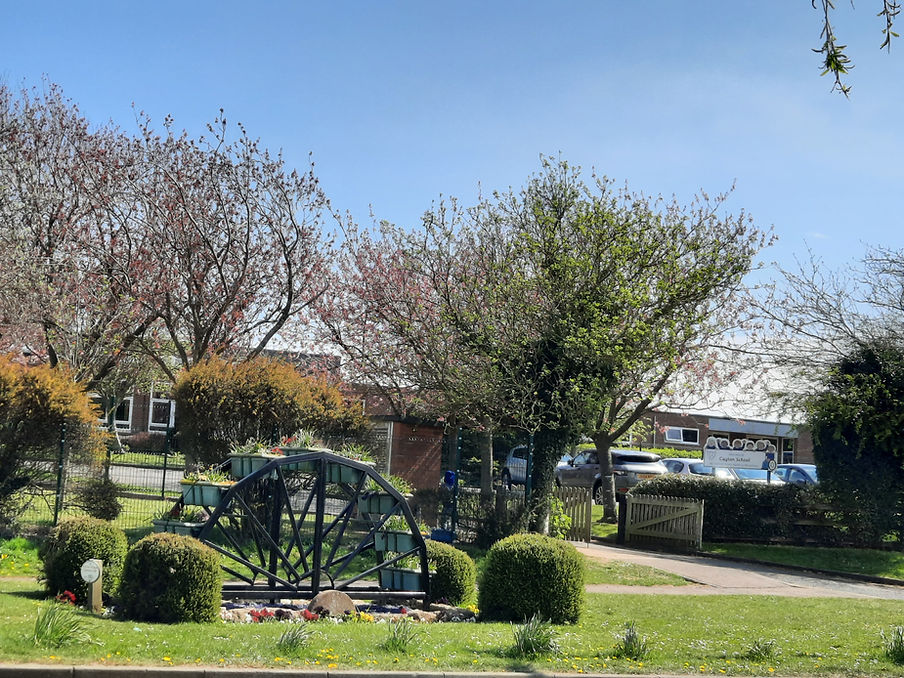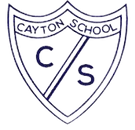

Learn from yesterday, seek today and aim for tomorrow
“There are high expectations for all pupils. Pupils’ attendance is high. Pupils’ conduct in and around school is exemplary.”
“Parents and carers are committed to the school. They are overwhelmingly positive about the impact the school has on their children.” “Pupils thrive in a carefully developed, nurturing environment.” “Pupils have an appetite for learning.”
“All decisions at Cayton are taken with the pupils’ best interests at their centre.” Ofsted November 2024
IMPORTANT: Please note that we are a nut-aware school. Nuts should not be brought into the building due to allergies.

Being an Athlete at Cayton
At Cayton School, children will become confident and enthusiastic in Physical education. They will be able to transfer their knowledge of fundamental skills into real life sporting situations and become healthy, motivated children. A high up take of children attending PE lessons and extra-curricular sports clubs will continue to be seen. The school will continue to be successful in local and county sports competitions.
Real PE is an inclusive approach with the ambition that PE is a positive experience for EVERY child. It teaches children Fundamental Movement Skills (FMS) and key learning behaviours to help achieve that ambition. Pupils develop detailed knowledge and skills across the curriculum and, as a result, achieve well.
Behaviours & Attitudes - Pupils consistently have highly positive attitudes. They are committed to their learning, know how to study effectively, are resilient to setbacks and take pride in their achievements.
Personal Development - The curriculum and the school’s wider work support pupils to develop resilience, confidence and independence and lead a healthy and active lifestyle, helping them to know how to keep physically and mentally healthy.
At Cayton, we want children to develop an inquisitive and investigative mind where they ask questions about their surroundings and the wider-world we live in. We believe that Physical Education:
• Develop competence to excel in a broad range of physical activities
• Are physically active for sustained periods of time
• Engage in competitive sports and activities
• Lead healthy, active lives
The ambitious real PE curriculum enables all children to flourish and experience success throughout their primary school phase. Through a carefully planned and sequenced curriculum, which starts in EYFS, children build, revisit, and develop skills and knowledge as they progress through school, thereby developing a strong sense of self-efficacy.
Our Real PE is a curriculum that includes:
-
structured and progressive physical development challenges
-
skill application opportunities that involve rules
-
strategies and tactics that are age and stage appropriate
-
integrated review sessions that focus on healthy participation.
These enable children to progress and know ‘how’ to get better at PE. Teachers’ subject knowledge is developed through your real PE platform where they are able to draw upon declarative and procedural knowledge that supports them to teach high-quality lessons.
The National Curriculum states that “A high-quality physical education curriculum inspires all pupils to succeed and excel in competitive sport and other physically-demanding activities. It should provide opportunities for pupils to become physically confident in a way which supports their health and fitness. Opportunities to compete in sport and other activities build character and help to embed values such as fairness and respect.”
Our curriculum reflects these beliefs and has been researched to ensure a deep and consistent pedagogy in the teaching of PE & Sport. Through the use and teaching of Real PE, Cross Curricular Orienteering and Swimming, the curriculum enables children to understand, develop and maintain their knowledge and skills, in order to use them in real life situations.
At Cayton School, pupils do not only develop physical and health and fitness skills. Through Real PE, they develop personal, social, creative, cognitive skills that are transferable across the curriculum.
“Intelligence and skills can only function at the peak of their capacity when the body is healthy and strong.” - John F. Kennedy
The Learning Journey
Early Years
Pupils’ physical development involves providing opportunities for young children to be active and interactive; and to develop their co-ordination, control, and movement. Children must also be helped to understand the importance of physical activity, and to make healthy choices in relation to food.

When moving and handling, children develop good control and co-ordination in large and small movements. They move confidently in a range of ways, safely negotiating space. They handle equipment and tools effectively.
Supporting pupils’ health and self-care enables them to understand the importance for good health of physical exercise, and a healthy diet, and talk about ways to keep healthy and safe.
Pupils in EYFS are introduced to fundamental movement skills by being taught to balance on one leg, jump and land safely and move using opposite arms and legs on a line. The can send and receive accurately and react in time to catch a ball.
Key Stage One

Progressing into Key Stage 1, pupils develop fundamental movement skills, become increasingly competent and confident and access a broad range of opportunities to extend their agility, balance and coordination, individually and with others. They are able to engage in competitive (both against self and against others) and co-operative physical activities, in a range of increasingly challenging situations.
Pupils should be taught to master basic movements including running, jumping, throwing and catching, as well as developing balance, agility and co-ordination. They begin to apply these in a range of activities that include participating in team games and developing simple tactics for attacking and defending. Pupils also perform dances using simple movement patterns.
Lower Key Stage Two
Pupils continue to apply and develop a broader range of skills, learning how to use them in different ways and to link them to make actions and sequences of movement. They enjoy communicating, collaborating and competing with each other. Pupils also develop an understanding how to improve in different physical activities and sports and learn how to evaluate and recognise their own success.

Pupils learn to use running, jumping, throwing and catching in isolation and in combination. They play competitive games and apply basic principles suitable for attacking and defending. Pupils develop flexibility, strength, technique, control and balance through gymnastics, dance and athletics. They also perform dances using a range of movement patterns.
Our new cross curricular orienteering scheme encourages pupils’ to take part in outdoor and adventurous activity challenges both individually and within a team. Throughout the curriculum, pupils compare their performances with previous ones and demonstrate improvement to achieve their personal best.
Upper Key Stage Two
Progressing through Key Stage 2, pupils apply their fundamental movement skills to small sided sports games, movement games and competitions. They show fluidity in movements and when transferring across pitches or courts, using acceleration and also being able to decelerate. Pupils work as individuals or in teams, applying, adapting and changing movements or tactics as outcomes and challenges appear. They can develop strategies in games to overcome challenges.

In dance, pupils’ demonstrate smooth, detailed movement sequences and can offer feedback and guidance to peers. Gymnastics movements are held with control and tension, using body extensions with and without apparatus.
At Cayton School, Key Stage 1 and Key Stage 2 both receive swimming instruction for a half termly block each year. Ensuring all pupils receive yearly, progressive swimming experiences.
From Year 2, water safety and confidence are at the forefront of our intentions because of our close proximity to beaches in the area and our beach school activities that take place. Pupils are taught to swim competently, confidently and proficiently over a distance of at least 25 metres by the end of Year 6.
Pupils practise a range of strokes effectively [for example, front crawl, backstroke and breaststroke] and perform safe self-rescue in different water-based situations.








